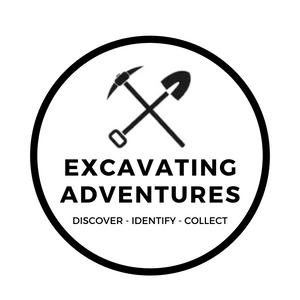Mega Eruptions: Decoding the Secrets of Supervolcanoes
Get ready to embark on an explosive adventure into the world of supervolcanoes, Earth's most colossal and mysterious natural wonders!
Picture giant sleeping giants beneath the earth, capable of eruptions so immense they can change the whole planet. As we journey through this volcanic landscape, we'll uncover the secrets of these massive phenomena, from the sprawling calderas of Yellowstone to the ancient eruptions that shaped our world.
So, put on your explorer's hat, and let's delve into the thrilling and powerful realm of supervolcanoes, where every eruption tells a story of Earth's fiery heart!
Learning Objectives:
What Is a Supervolcano?
A supervolcano is a super-sized volcano that can have an eruption thousands of times more powerful than a regular volcano. Imagine a volcano so big that when it erupts, it can affect the whole world! Supervolcanoes don't look like your typical mountain-shaped volcanoes; they usually have a large depression called a caldera because their eruptions are so big that they cause the volcano itself to collapse.
Where Are Supervolcanoes Located?
Supervolcanoes are found in different parts of the world. One of the most famous is the Yellowstone supervolcano in the United States. Others include Lake Toba in Indonesia, Taupo in New Zealand, and the Long Valley caldera in California. They sit on hot spots in the Earth's crust where magma is close to the surface.
How Often Do Supervolcanoes Erupt?
Supervolcano eruptions are extremely rare. The last time a supervolcano erupted was about 26,000 years ago in New Zealand. These eruptions don't happen often, but when they do, they can be very powerful. Scientists keep an eye on these volcanoes to look for signs of any upcoming eruptions.
What Happens When a Supervolcano Erupts?
When a supervolcano erupts, it's a huge event! The eruption can send tons of ash and gases high into the atmosphere, which can block sunlight and change the climate around the world. This can lead to cooler temperatures and even affect crops and weather. Also, the eruption can cause a lot of lava to flow and create massive ash clouds.
Why Are Supervolcanoes Important to Study?
Studying supervolcanoes helps scientists understand more about how our planet works. By learning about these huge volcanoes, scientists can better predict eruptions and understand the risks they pose. It also helps us learn about past climate changes and how big eruptions can affect life on Earth.
Supervolcanoes Fun Facts:
- Supervolcanoes are significantly larger than regular volcanoes, with eruptions powerful enough to affect the entire planet.
- They usually have large depressions called calderas, formed due to the immense size of their eruptions.
- Famous supervolcanoes include the Yellowstone supervolcano in the United States and Lake Toba in Indonesia.
- Supervolcano eruptions are extremely rare, with the last known eruption occurring around 26,000 years ago in New Zealand.
- When supervolcanoes erupt, they can release massive amounts of ash and gases, impacting global climate and sunlight.











